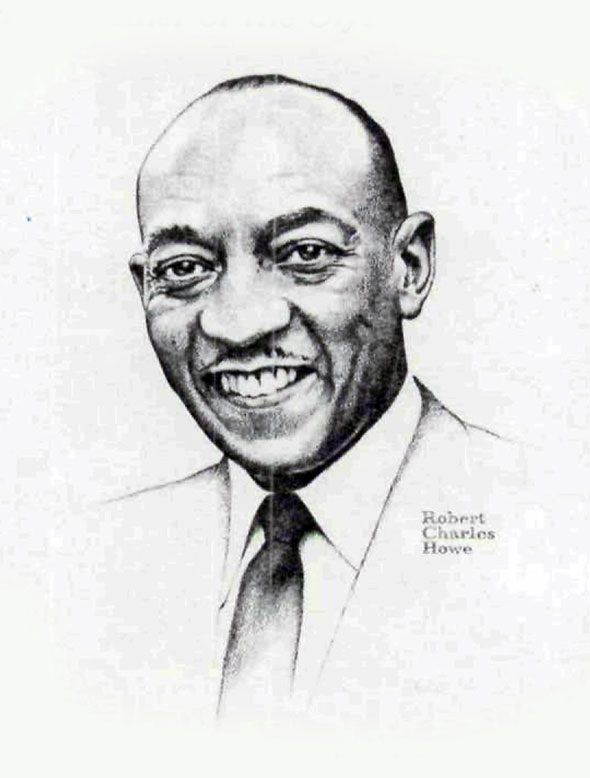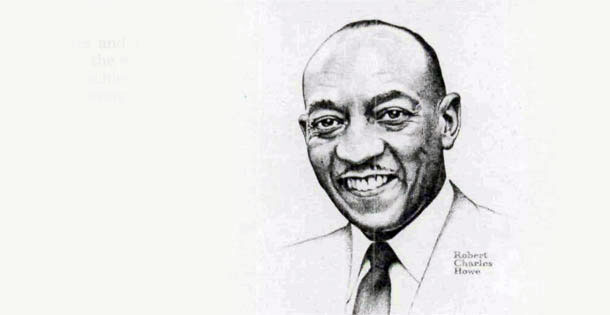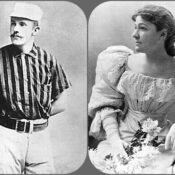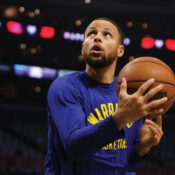Jesse Owens wrote a series of Post articles about great U.S. Olympians in 1976. In this article from the January/February issue, Owens recalls his own moment of triumph in 1936 Berlin and the people who inspired him to become a champion.
1936: Golden Moment of Triumph
By Jesse Owens
Originally published January/February 1976

Editor’s note: In the Olympic Games of 1936, held in Berlin, a superb American athlete by the name of James Cleveland “Jesse” Owens won four gold medals. He won his first two medals with astonishing performances in the 100- and 200-meter sprints, setting new records in both. His leap in the broad jump won him a third medal, once again for a record, 26 feet 5 5/16 inches. And finally, Jesse ran in the 400-meter relay to help set another world record and to win a fourth gold medal for the United States. As a mere boy in junior high school in Cleveland, Jesse had run the hundred yards in 10 seconds flat, a phenomenal feat. That was the beginning of fame for a youngster born in 1913 on a tenant farm in northern Alabama, one of seven children who worked with their parents in the cotton fields. This splendid man who was a great-grandson of slaves, who was called by Dr. Paul Goebbels, the Nazi propagandist leader, “a black American auxiliary,” has made everyone in America proud of his lifetime contributions as a citizen. Goebbels had to eat those words that day in ’36 as Jesse swept the field time after time, and in due time was selected by sportswriters’ polls as the world’s “top track performer since 1900.”
Jesse’s fame has not dimmed through the years, as he has continued to represent the character of American athletic competition as an inspiration to youngsters, and an image of integrity that has never wavered since the days of his track triumphs. Arthur Daley once commented, “Owens was so matchless in his sheer grace and speed that his like may never be seen again.”
Today, Jesse Owens is scarcely a pound heavier than in his running years. Trim, erect, square-shouldered, he walks on those marvelous legs, still, like some relaxed panther ready to burst into galvanizing energy at a moment’s notice. His own story of his Olympic victories tells you much about the kind of man he is.
Since I was 13 years old, it was my dream that I might someday participate in the Olympics. It all came about simply because our junior high school coach, Charles Riley, who happened to develop quite a lot of good runners for this country, brought to our school, Fairmount Junior High School in Cleveland, Ohio, a man who at that time was known as the “World’s Fastest Human Being,” Charles Paddock, the great United States sprinter famous for his leaping lunge at the finish of every race.
Charlie Paddock had just returned from the 1920 Olympics in Amsterdam, Holland, and he was a very nice man who settled down and just told us kids all about it.
When Charlie Paddock was through talking to us, the coach came down to where I had been sitting in the front row in an end seat in the auditorium and he whispered in my ear that since there were a lot of youngsters who might want to get Charlie Paddock’s autograph, perhaps I could take the problem in charge and help them line up. I did this, and as a reward after the last of my schoolmates got the great man’s autograph, I was invited into the coach’s office to meet the famous runner.
I can remember facing this great athlete as he sat on the coach’s desk with one leg hanging down, and he and the coach seemed to be in such deep conversation that I was afraid I was interrupting them. But they didn’t seem to mind my standing around and the great Paddock shook my hand as he left.
Afterward the coach asked me, “Well, what do you think about him?” And I said, “Well, gee, coach, I sure would like to be known as the ‘World’s Fastest Human Being’ some day.” So, then, Charles Riley told me something I have never forgotten.
“Everybody should have a dream,” he said. “Every man must remember that dreams are high and that you must climb a ladder to reach them. Each rung of that ladder has a meaning of its own as you climb. The first rung of that ladder, of course, goes back to one important point — just how dedicated are you? How much of what you have are you willing to give to the dream? And the next rung of the ladder is your determination to train yourself to reach the dream at the top. And the third rung of that ladder is the self-discipline that you must display in order to accomplish all this. The fourth rung, which is one of the most important rungs in that ladder to your dream, is the kind of attitude you have in going about all this. By this I mean, are you capable of giving every moment that you possibly can to making this dream come true and of throwing your whole heart and soul into the effort?”
I remembered that moment nine years later when I stood at the starting line of the 100-meter race in the Olympic Stadium in Berlin, waiting to run against the finest competitors that the world had to offer. I looked down that field to the finish 109 yards and 2 feet away and then I began to think in terms of what it had taken for me to get there, the number of people who had counseled and coached me; and the people who believed in me — the community from which I had come and the school which I attended.
And as I looked down at the uniform of the country that I represented and realized that after all I was just a man like any other man, I felt suddenly as if my legs could not carry even the weight of my body. My stomach said that it wasn’t there. My mouth was dry as cotton; the palms of my hands wet with perspiration. And as we stood there, unnoticed — unnoticed because a German boy had won an Olympic victory in another part of the stadium, and the crowd was giving him an ovation that was due an Olympic champion — this was the sight that I saw within that wonderful arena. As my eyes wandered across the field, I noticed the green grass — the red track with the white line. A hundred-and-odd-thousand people crowded into the stands. And as my eyes looked upward, I noticed the flags of every nation represented there at the Olympic Games underneath that German blue sky.
Now, my attention was diverted from that beautiful picture, because the whistle had been blown and we were to assemble around the starter to receive our final instructions for this historic event. After our instructions had been given, every man went to his mark and adjusted hands and feet. Every muscle in his body was strained. And suddenly the gun went off. The athletes ran neck and neck for some yards, but our Ralph Metcalfe of Marquette University led the field at the 50-yard mark. From then, the 70 to the 90, Ralph and I ran neck and neck. And then for some unknown reason I cannot yet fathom, I beat Ralph, who was such a magnificent runner.
The greatest moment of all, of course, was when we knelt and received the Wreath of Victory, and standing there facing the stands, we could hear the strains of the Star Spangled Banner rise into the air and the Stars and Stripes was hoisted to the skies. It was then that I realized the immensity of my ambition of nine years to become a member of Uncle Sam’s Olympic Team and to emerge as a victor in the Olympic Games. Yes, this was the moment I had worked for all those years. And let me say that as you stand there and watch your flag rise above all others because of your own efforts and you can say to yourself today, “I am an Olympic champion,” there cannot be a greater thrill. But we have to remember that more than victory itself, the Olympic Games teach us a sportsmanship that transcends all prejudices and national and racial lines. That year was a very difficult year because Hitler had declared the dominance of the German Aryan race and we had the impudence to come over and prove him wrong in so many cases.
But there was one incident that happened in those Olympic Games which I shall never forget and which represents to me an example of how friendship and sportsmanship can transcend all obstacles when given the opportunity. The broad jump was an event that I was supposed to win with some ease because in the past I had failed only once to win first place in every track meet in which I had participated in my entire athletic career. But on this day, something was going wrong. I couldn’t imagine what was happening to spoil my jumping technique, but I had jumped only 23 feet 6 inches as a qualification effort and apparently was about to be eliminated. But there happened to be a young German broad jumper, Lutz Long, the greatest of them all in his own country, who was watching as I took my qualifying jumps. I had already fouled twice, and it looked as though I might not even be able to survive in the competition. But he came over and remeasured my steps, remeasured my takeoff mark, and he laid out my sweatshirt right next to the takeoff board as a marker to help my jump. Thanks to his suggestions and confidence in me, I was able to produce a leap which qualified and opened up the pathway to ultimate victory. Lutz Long jumped 25 feet 9 27/32 inches for a new Olympic record. I managed 26 feet 5 5/16 inches and so won. Lutz was second; but in my book of sportsmanship he ranks first.
You can imagine how touched I was at such sportsmanship. My friendship with Lutz Long, which commenced so brightly on the field of competition, continued after the Games. We became great friends and we corresponded regularly. But during World War II, sometime during the invasion of Poland, the last living traces of Lutz Long were obliterated in the Holocaust.
In 1951 I returned to Germany and among a delegation, which came to visit me at the hotel where I was staying, there were a woman and a boy who came up and introduced themselves to me. This boy was the son of my lost friend, Lutz Long, and his name was Kai. Lutz Long had been only 22 at the time of the Olympics, and as the preparation for World War II rushed across Germany, it transpired that this little boy had seen his father only three times in his life. And so I began to correspond with Kai, and then we developed our own friendship that arose from the father’s noble and self-sacrificing sportsmanship and generosity. Kai Long and I continue to correspond and whenever I hear from Lutz’s son, my mind goes back to that afternoon in the Olympic Stadium when an athlete sacrificed his fame and victory for the sake of pure sportsmanship. And then I know that the Olympic ideal is something that should be cherished and never forgotten.
For more of our historical coverage of the Olympic Games, check out “The Summer Olympic Games: Heroes, Hope, and Hostility.”
Become a Saturday Evening Post member and enjoy unlimited access. Subscribe now



